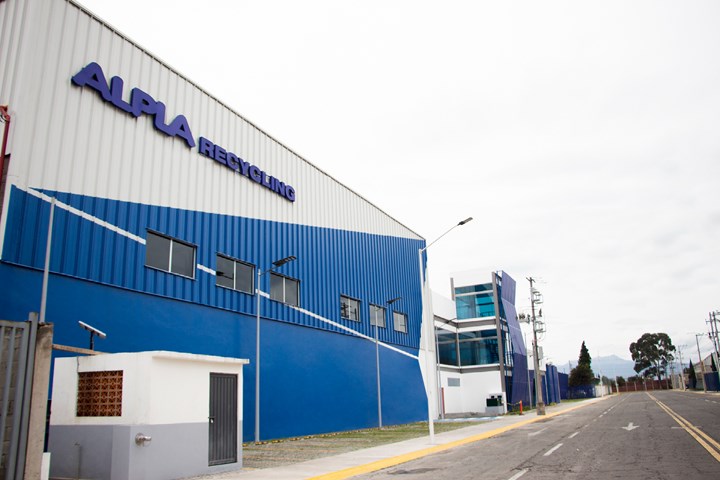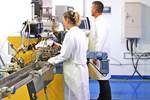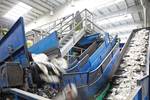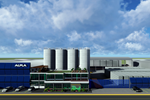ALPLA Opens New HDPE Recycling Plant in Mexico
The demand for recycled material is so high in Mexico and Central America that the majority of the output will be used regionally.
The ALPLA Group has opened a new plant for HDPE plastic recycling in Toluca, Mexico. The company also has announced it will double its annual regrind material production capacity to 30,000 tonnes from the second half of 2022.
ALPLA celebrated the inauguration of its recycling plant for high-density polyethylene (HDPE) plastics in Toluca, the capital of the central Mexican State of Mexico, on November 10. Following the announcement of the plant’s construction in September 2020, it took a little more than a year for the work to be completed. The investment was around 20 million euros. Around 70 new jobs have been created at the plant, which will be run as a wholly owned subsidiary of ALPLA.
The facility is currently designed for an annual capacity of 15,000 tonnes of recycled HDPE (rHDPE) in pellet form. This material is mainly used for the production of non-food packaging such as personal care products and household cleaning agents. The demand for recycled material is so high in Mexico and Central America that the majority of the output will be used regionally.
Georg Lässer, head of corporate recycling, said: “We are delighted to be playing an important part in implementing a circular economy locally in Mexico with this new site. In taking this action, we are giving used plastic bottles value and are also promoting plastics collection and the development of the necessary regional infrastructure.”
ALPLA already announced an increase in the recycling plant’s annual production capacity to 30,000 tonnes starting in the second half of 2022. The company has many years of experience in recycling post-consumer PET in Mexico. The first bottle-to-bottle recycling plant in Latin America, Industria Mexicana de Reciclaje (IMER), went into operation back in 2005. IMER is a joint venture between ALPLA México, Coca-Cola México and Coca-Cola Femsa. By joining forces, the partners have established the infrastructure for collecting and recycling used PET beverage bottles over the past 15 years. They produce close to 15,000 tonnes of food-grade flakes from post-consumer PET a year.
In early 2021, the ALPLA Group announced that it would invest an average of 50 million euros a year until 2025 in the ongoing expansion of its recycling activities. In particular, it plans to globalize its activities in the area of high-quality recycled material in order to close the materials cycle in as many regions as possible. In all, the annual capacity of the ALPLA recycling companies, joint ventures and partnerships amounts to approximately 130,000 tonnes of PET and 60,000 tonnes of PE.

The facility in Mexico is currently designed for an annual capacity of 15,000 tonnes of recycled HDPE (rHDPE) in pellet form. Photo credit: ALPLA Group
Related Content
-
Evolving Opportunities for Ambitious Plastics Recycler
St. Joseph Plastics grew from a simple grinding operation and now pursues growing markets in recycled PP, food-grade recycled materials, and customized post-industrial and post-consumer compounds.
-
Multilayer Solutions to Challenges in Blow Molding with PCR
For extrusion blow molders, challenges of price and availability of postconsumer recycled resins can be addressed with a variety of multilayer technologies, which also offer solutions to issues with color, processability, mechanical properties and chemical migration in PCR materials.
-
Foam-Core Multilayer Blow Molding: How It’s Done
Learn here how to take advantage of new lightweighting and recycle utilization opportunities in consumer packaging, thanks to a collaboration of leaders in microcellular foaming and multilayer head design.
















